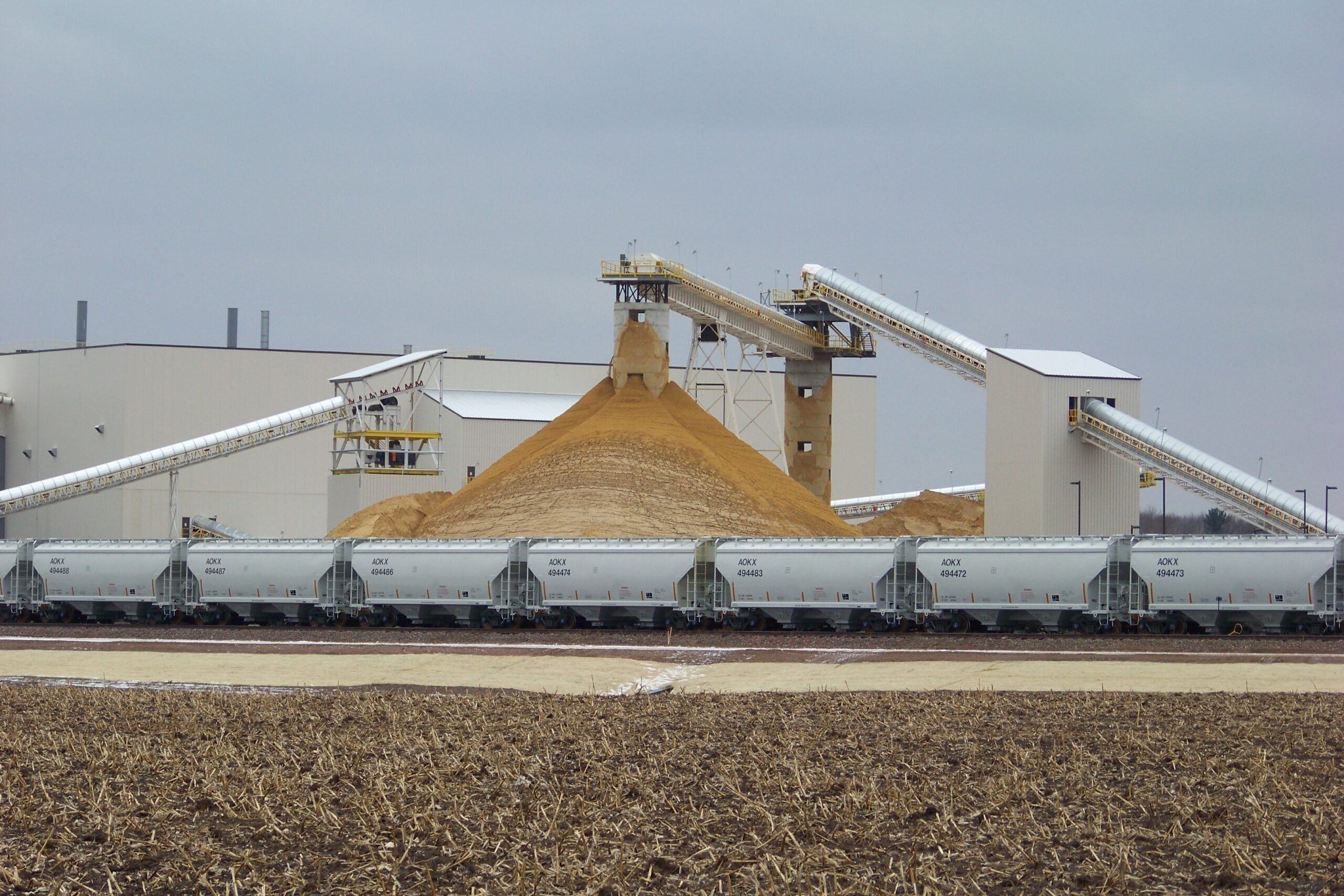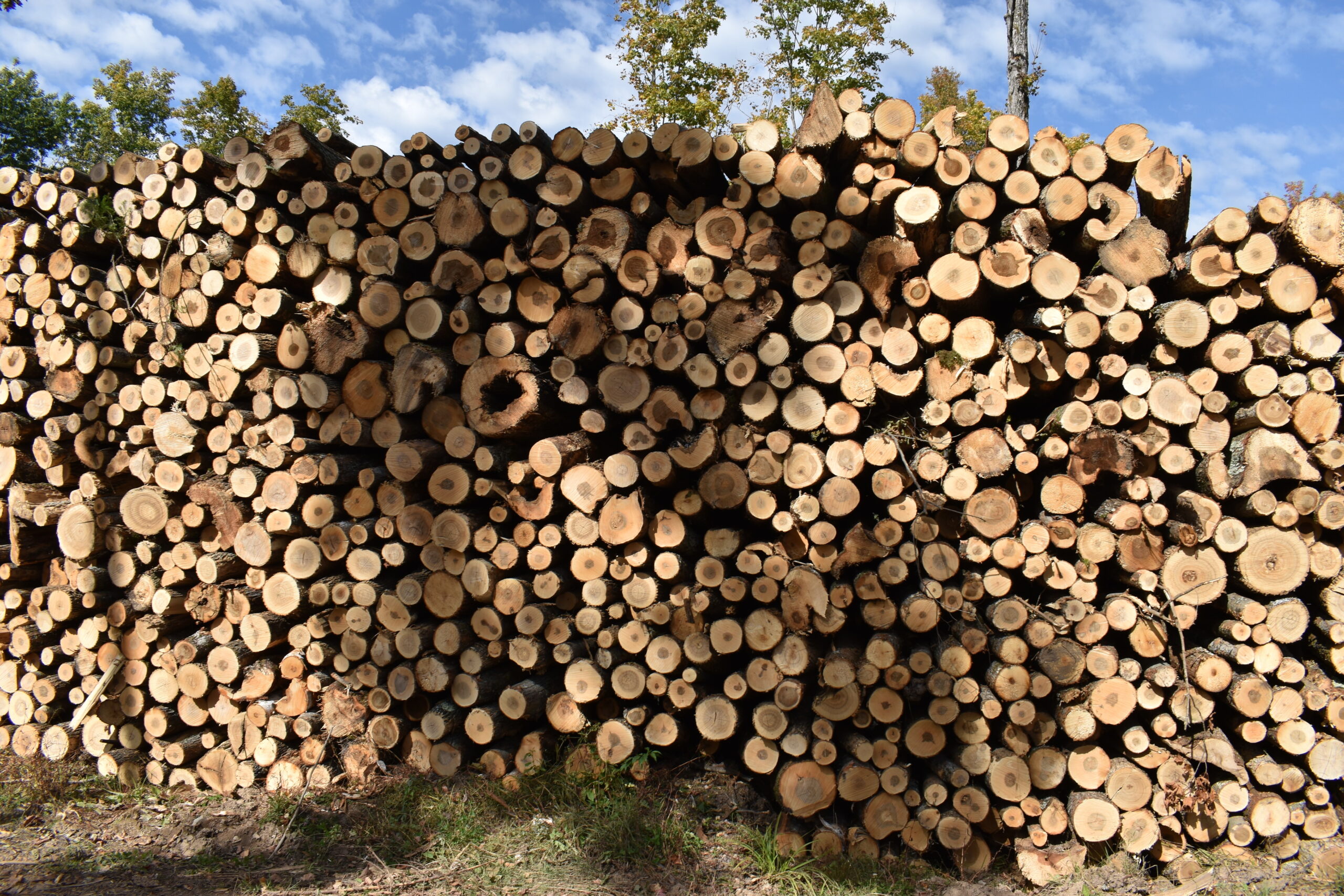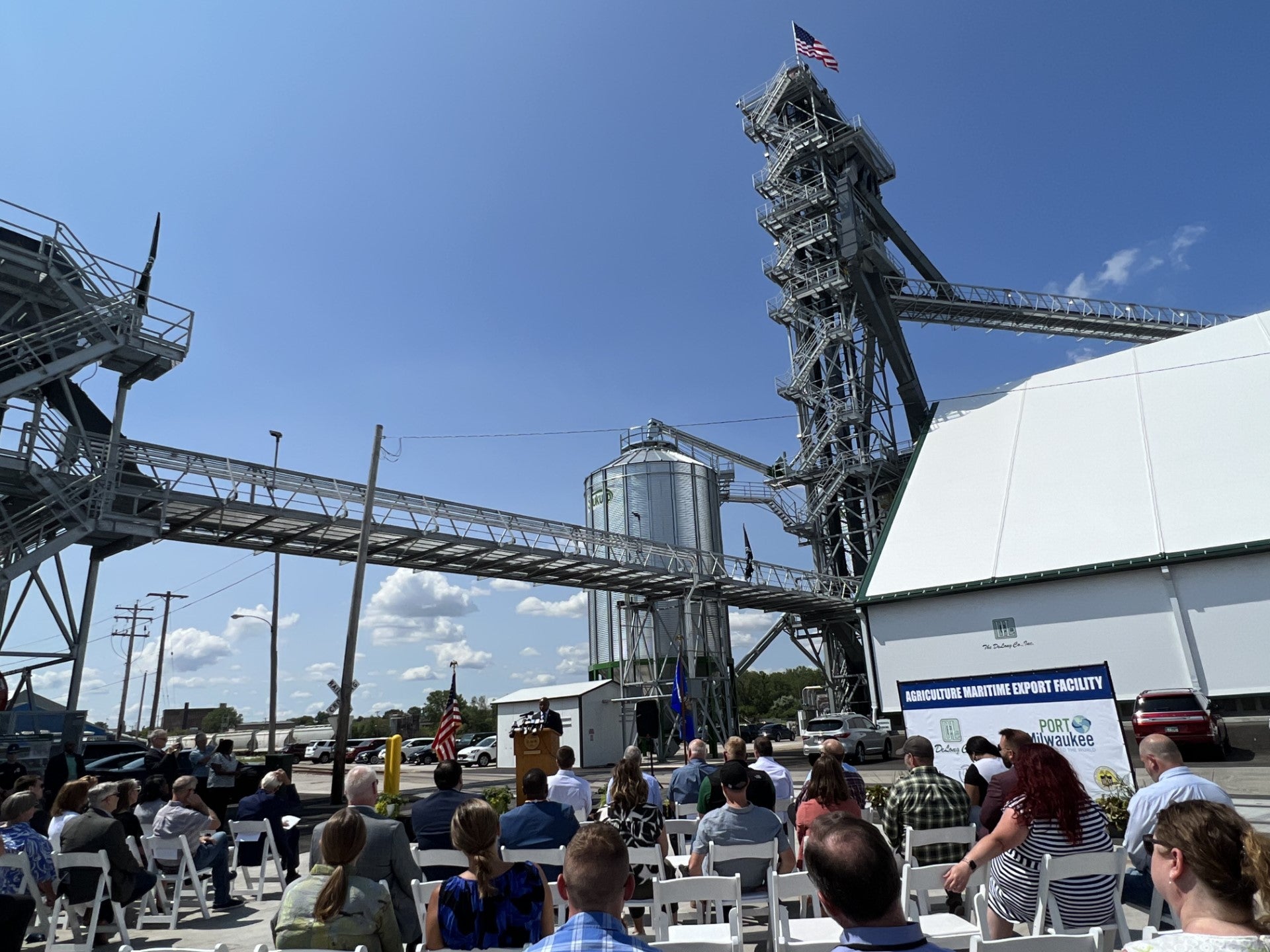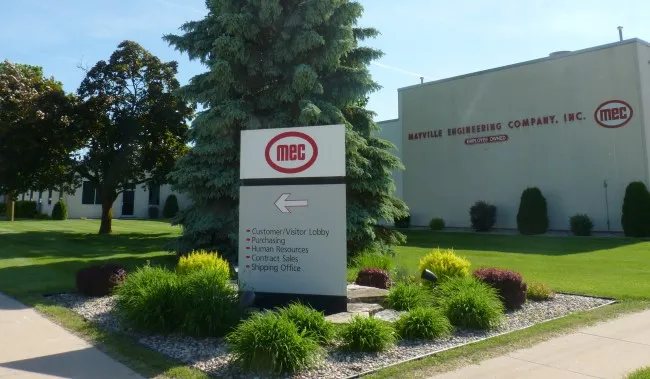In the wake of western Wisconsin’s frac sand mining bust, companies from Wisconsin and abroad are buying up and repurposing former sand processing and loading facilities.
Between 2010 and 2016, the number of frac sand mines and processing plants in western and west-central Wisconsin exploded from a just handful of operations to nearly 100. But by 2017, oil and gas companies drilling in places like Texas were moving away from Wisconsin’s “northern white” sand, favoring sand produced near wellheads while avoiding significant shipping costs.
Since then, several major companies with sand operations in Wisconsin have gone bankrupt. Many mines and processing plants have been idle for years and some have been liquidated.
News with a little more humanity
WPR’s “Wisconsin Today” newsletter keeps you connected to the state you love without feeling overwhelmed. No paywall. No agenda. No corporate filter.
In the meantime, economic development officials have been working to find buyers for former sand processing facilities located on rail lines that were rebuilt for the sand boom.
In Chippewa County, a U.K.-based company called Collaborative Engineering Services is planning to invest up to $15 million to redevelop a former sand processing and rail loading plant near Chippewa Falls.
Chippewa County Economic Development Corporation CEO Charlie Walker told WPR the company plans to repurpose rechargeable batteries used in electric vehicles.
“I guess you could call it an irony,” Walker said. “But going into electric vehicles, from having a facility that supported the traditional drilling of oil and gas and now having something that (…) that’s going to take us into the future, is really, really cool and a great opportunity.”
Walker said former sand processing sites are ideal in the face of a lack of available real estate on rail lines.
Lesley Blaine and Chris Gregory are Collaborative Engineering Services’ cofounders. Blaine said when electric vehicles are recalled, their battery packs are often shredded, even if the cells within them are perfectly fine.
“We want to interrupt that process and be able to give a second life to battery packs,” Blaine said.
The goal is to reuse groups of battery cells, called modules, and make new battery packs for things like home solar power storage or even utility scale power storage, Blain said. Ultimately, the two hope to see their batteries used in electrifying things like utility terrain vehicles, snowmobiles, forklifts and semi trucks.
Gregory said they’re building an engineering team in Wisconsin and have already connected with the University of Wisconsin-Eau Claire, University of Wisconsin-Stout and area technical colleges. The two hope to have the company up and running toward the end of 2024.
“We’re hopeful that we can recruit as much as we possibly can from the Chippewa Valley region and the talent pool that there is here,” Gregory said.
In Barron County, Economic Development Corporation director Dave Armstrong said Ardisam Incorporated in Barron bought a former frac sand drying and loading plant in the town of Arland. The company manufactures outdoor recreational gear like tents, hunting blinds, tree stands and ice augers.
“It’s brand new rail,” said Armstrong, who is also a Republican Assembly representative. “They’ve got access to Highway 53 and a wide-open area, basically because the frac sand locations themselves were huge and they were wide open. So they can build whatever they want there.”
Armstrong said discussions about other former processing facilities are underway. Ideally, he’d like to see an investor develop a transload facility, where large shipping containers can be transferred from trains to semi trucks.
“A transload (facility) would be phenomenal here because that would give a lot more companies access to the rail,” Armstrong said.
Wisconsin Public Radio, © Copyright 2025, Board of Regents of the University of Wisconsin System and Wisconsin Educational Communications Board.






